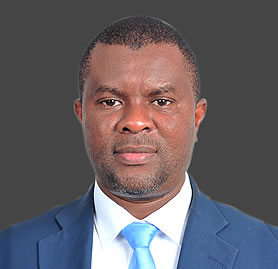Chambers Global Guide

Mining 2019
We are pleased to announce the publication of Chambers Global Guide 2019.
The guide provides expert legal commentary on key issues for businesses. The guide covers the important developments in the most significant jurisdictions.
General Structure of Mineral Ownership and Regulation
Ownership of Mineral Deposits
The mineral deposits in the soil and subsoil are owned by the Republic of Senegal.
Regulation of Mining Industry
The mining industry is mainly regulated by the following rules:
- Law No 2016-32, dated 8 November 2016, on the Mining Code;
- Decree 2017-459, implementing Law No 2016-32 on the Mining Code;
- Decree 2009-1335 of 30 November 2009, establishing the terms and conditions for the supply and operation of the mine site rehabilitation fund;
- Law No 2003-36 of 24 November 2003 on the Mining Code and its implementation decree (these acts are replaced by Law No 2016-32 but are still applicable to mining rights issued before its abrogation in accordance with the stability principle);
- Decree No 2009-1334 of 30 November 2009, establishing the rate and the distribution modalities of the Equalisation and Support Fund for local authorities;
- Decree No 2015-1879 of 16 December 2015, amending Decree No 2009-1334 of 30 November 2009, establishing the rate and method of distribution of the Equalisation and Support Fund for local authorities;
- Decree No 2013-381, dated 20 June 2013, establishing the national committee of the Extractive Industries Transparency Initiative;
- Order No 009249 of 14 June 2013 on the organisation of Gold panning activity in Senegal;
- Order No 9468 MJEHP/DEEC of 28 November 2001 regulating the participation from the public to the environmental impact assessment
- Regulation No 18/2003/CM/WAEMU, dated 22 December 2003, enacting the West African Economic and Monetary Union (WAEMU) Mining Code;
Directive C/Dir3/D5/D9 on the harmonisation of guiding principles and policies in the mining sector enacted by the Economic Community of West African States (ECOWAS); - Law No 2001-01 of 15 January 2001 on the Environmental Code;
- Law No 2012-31 of 31 December 2012 on the General Tax Code;
- Law No 2012-32 of 31 December 2012, amending various legislative provisions relating to tax regimes;
- Law No 2018-10 of 30 March 2018, amending certain provisions of the General Tax Code;
- Law No 2013-10 of 28 December 2013 on the General Code of Local Authorities; and
- The Standard Mining Convention, passed in the application of Law No 2016-32 of 8 November 2016 on the Mining Code.
Independent Regulations for Mining
Mining is regulated by the rules above in Regulation of Mining Industry, while oil and gas are governed by Law No 98-05 of 8 January 1998 on the Petroleum Code and its implementation decrees.
Administration of the Mining Industry
The main governmental bodies administering the mining industry include the following:
- the Presidency of the Republic;
- the Ministry of Mines and Geology, including the Directorate of Mines and Geology, the Directorate of Control and Monitoring of Mining Operations, and the Directorate of Prospecting and Mining Promotion, as well as district mines departments;
- the Extractive Industries Transparency Initiative national committee; and
- the Directorate of the Environment and Classified Establishments.
Required Authorisations and Permits
Requirements to Conduct Prospecting
Prospection authorisation is required, which is issued by the mining administration.
Requirements to Conduct Exploration
An exploration permit or production-sharing agreement in certain cases is required to conduct exploration. Exploration rights are issued by the Ministry of Mines and Geology.
Requirements to Conduct Mining
The following permits are required to conduct mining, depending on the activity performed:
- a mining permit (large-scale mining);
- a production-sharing agreement;
- an exclusive mining permit;
- a small-scale mining permit;
- a semi-mechanised mining permit; or
- an artisanal mining permit.
Environmental Requirements to Conduct Exploration and Mining
Exploration and mining require a prior environmental impact assessment, which will be approved by the Directorate of the Environment and Classified Establishments.
In addition, the exploration and mining of radioactive mineral substances are subject to a favourable opinion given by the Senegalese Authority for Radiation Protection and Nuclear Safety (ARSN) concerning the plans and programmes for monitoring and radiological protection related thereto.
Duties and Rights Derived from a Mining Title or Concession
Rights Granted by a Mining Title to Holder
A prospection authorisation confers a non-exclusive right to prospect for specified substances within the territory of the Republic of Senegal or in a specified area of the territory for a six-month maximum term, renewable once.
An exploration right confers an exclusive right to the holder ‒ within the perimeter, on the surface and at indefinite depth – to explore the mineral substances for which it is issued, for a term of four years, renewable twice. In addition, the holder has the right to acquire a mining right if he or she has demonstrated the existence of a commercially exploitable deposit or to acquire an exploration right if he or she discovers a new mineral substance within the prospecting perimeter. It is still possible for the holder to transfer his or her exploration right.
A mining permit confers an exclusive right to mine and dispose freely of the substances for which the said mining licence is granted, within the limits of the perimeter allocated and indefinitely at depth, for a term between five and 20 years renewable. The holder also has the right to renew, extend, surrender, transfer or lease the tile. The holder has the right to transport commodities extracted to a storage / processing site and to sell them.
A small-scale mining permit confers to the holder ‒ within the perimeter granted and at indefinite depth ‒ the exclusive right to prospect and mine through semi-industrial or industrial processes the mineral substances for which the permit was issued, for a term of five years renewable.
A semi-mechanised mining permit confers to the holder within the perimeter granted, and to a depth of 15 metres, the right to mine through semi-mechanised methods and processes the mineral substances for which the permit was issued, for a term of three years renewable.
An artisanal mining permit confers to the holder the right to extract and concentrate the mineral substances and recover the merchant products through traditional processes, for a term of five years renewable.
Duties Acquired by the Title Holder
To prospect, explore or exploit the mineral deposit, the mining rights-holders must inform the mining administration about the methods and results of their activity, and keep accounting for their transactions according to legal provisions, as well as respect human rights, transparency, social and environmental requirements.
The holder of a prospecting authorisation must inform the mining administration about the result of his investigation.
The holder of an exploration right must perform the annual programme of exploration activities within the term of his or her right, spend the minimum of his or her approved exploration working programme and request a mining right if there is proof of a commercially exploitable deposit. In addition, the holder must submit his or her purchase agreements as well as other agreements, including a lease contract regarding his or her mining right, to the Ministry of Mines and Energy for approval.
The mining title-holder must regularly inform the minister in charge of mines about the results of his or her activity. He or she must also fulfil within the legal timelines the financial requirements as provided by the mining convention he or she signed with the State.
Rights Acquired by the Title Holder
The title-holder has a right of land occupancy throughout the national territory in accordance with the specific laws and regulations, including declaration of the public utility of this activity and obtaining of occupancy authorisation. The holder may also provide as security (mortgage) the real property rights attached to the mining title, which, in this case, is subject to the same regime as the traditional land title. In addition, the holder has the right to transfer or lease his or her title, as well as to renew, extend or surrender it.
Duties Acquired by the Landowners
The title-holder must indemnify landowners and the State if any due to prejudice resulting from his or her land occupancy and to comply with human rights requirements.
Duties of the Title Holder at End of the Title
The holder of exploration and mining rights proceeds to the rehabilitation of the sites covered by his or her mining title at the end of the title. He or she is obliged to open and maintain a trust account at a specialised public institution designated by the State.
Environmental
Principal Environmental Laws
The following environmental laws affect the mining industry:
- Law No 2001-01 of 15 January 2001 on the Environmental Code;
- Decree No 2001-282, implementing the Environmental Code; and
- Decree 2009-1335 of 30 November 2009, establishing the terms and conditions for the supply and operation of the mine site rehabilitation fund.
4.2 Bodies of Environmental Competence
The Ministry of the Environment and Sustainable Development, and its district departments are the main governmental bodies with environmental competencies.
Environmental Obligations
See Environmental Requirements to Conduct Exploration and Mining and Duties of the Title-Holder at End of the Title above.
Miscellaneous
Special Rules or Taxes
On principle, there are no special rules or taxes for foreign people or companies, except for specific provisions provided by international tax conventions. Companies are subject to the local fiscal regime. In addition, people are subject to the local fiscal regime as tax residents. If they are not tax residents, they are in principle subject to non-commercial benefit tax (BNC) regarding their revenues. On the other hand, a repatriation tax is due to the State from foreign people residing in Senegal during their stay, which is paid once.
Restricted or Excluded Zones
Mining activities may be prohibited in protected zones established by order of the minister in charge of mines.
Mining activities may be restricted in classified forests.
Rights of Indigenous or Ethnic Communities
Indigenous and ethnic communities benefit from mining revenues through the Support and Equalisation Fund (20% of mining revenues) and the Local Development Support Fund (0.5% of turnover excluding taxes realised by mining companies). In addition, they have the right to be indemnified when their ownership is affected as landowners (as mentioned above in Rights Acquired by the Title-Holder).
Unilateral Termination of a Mining Title
Prospection authorisation can be revoked for breach of any obligation provided by the Mining Code. An exploration right can also be revoked for breach of any obligation provided by the Mining Code, including suspension of activities for six months without legitimate motivation or persistent inactivity, no payment of taxes and royalties, and lack of requesting a mining right while there is proof of a commercially exploitable deposit. An exploration right may also be revoked in the case of transfer of this right without prior approval by the Ministry of Mines and Geology.
The mining right can be revoked because of continuing inactivity, suspension or serious restriction of mining without reasonable grounds; illegal acquisition of right, including by corruption; non-payment of taxes or royalties; lack of regular register of sale of mining products; and for a legal or contractual breach, including a serious breach of health, security and environmental rules. In addition, the mining right can be revoked in the case of transfer of this right without prior approval of the Ministry of Mines and Geology.
Taxes or Royalties
In addition to state free carry rights of 10% in the mining company, the following taxes and royalties must be paid by title-holders, except in cases of specific tax-exemptions:
- entrance fees;
- mining royalties;
- reimbursement of a historic exploration activity;
- surface royalties;
- value-added tax;
- corporate tax;
- income tax from salary;
- land taxes;
- export taxes; and
- taxes relating to the transfer of mining rights.



